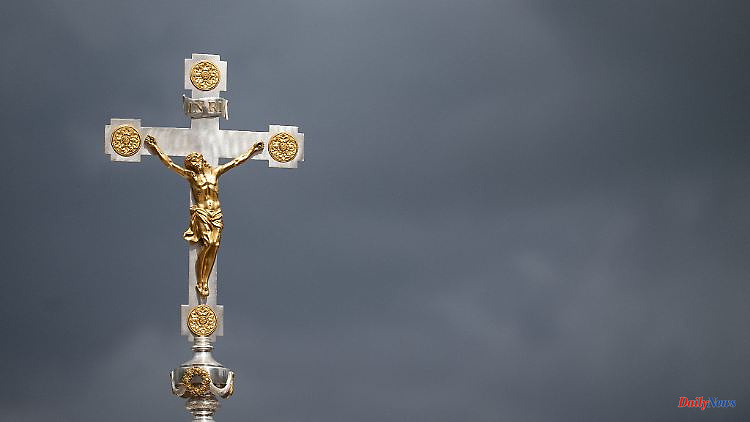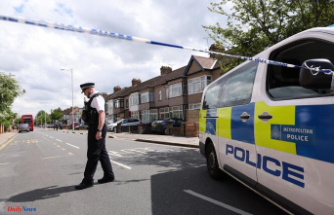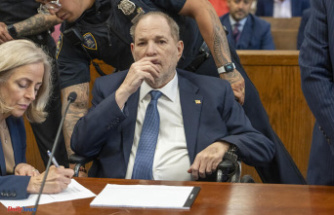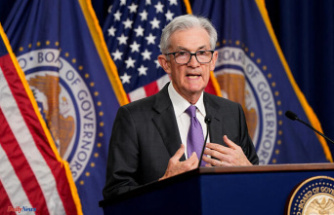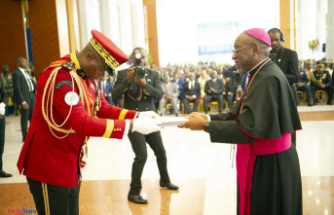It is an unprecedented process: In the abuse scandal in the Catholic Church, the public prosecutor's office obtained a search warrant against the Archdiocese of Munich, according to "SZ". An action with symbolic power - and a sign of a change of course?
Munich (dpa / lby) - After a search by the public prosecutor's office in the Archdiocese of Munich and Freising, those affected and church reformers are hoping for a change in the way the judiciary deals with suspected abuse in the Catholic Church. "This is actually a remarkable action. Hopefully it is a sign that the judiciary is changing course in dealing with the church," said the spokesman for the Eckiger Tisch initiative, Matthias Katsch, of the German Press Agency. "Unfortunately, it comes too late for many of those affected."
The chairman of the Advisory Board for Affected Persons of the Archdiocese of Munich, Richard Kick, called it "extraordinary that after more than ten years of looking the other way, the Bavarian state government is finally getting things moving".
According to the "Süddeutsche Zeitung", the Munich I public prosecutor's office made representations to the Archdiocese of Munich and Freising in mid-February with a search warrant. The action is said to be related to the abuse scandal in the Catholic Church and allegations of cover-up against diocese officials. The Archdiocese declined to comment on Sunday's request. According to "SZ", the investigations are not directed against Cardinal Reinhard Marx. It is said to be about the case of a priest who has since died and whose actions are said to date back to the 1960s.
Bavaria's Minister of Justice Georg Eisenreich (CSU) emphasized: "People in Bavaria can rely on this: the Bavarian public prosecutor's offices investigate consistently as soon as there are indications of initial suspicion. No one is above the law in Bavaria, no politician, no business boss and no clergyman ." Since 2010, several hundred investigations and preliminary investigations have been conducted in the church sector.
Eisenreich did not explicitly comment on the specific search case. But he emphasized: "The public prosecutor's offices apply the law. They investigate - and search, if necessary - whenever there is an initial suspicion." As he had already reported in the state parliament, there had been searches of clergy or church members in 39 cases since 2017 in the prosecution of abuse cases in the church in Bavaria. Eisenreich emphasized: "Searches do not serve to send a political signal, but to find evidence."
"The churches have tried for far too long to regulate everything within the church themselves. In doing so, they have repeatedly protected perpetrators and, above all, made further crimes possible," said Edgar Büttner from the reform movement Wir sind Kirche München and spoke of a "rather symbolic action" by the Public prosecutor. "It would have been good if this had already happened in 2010, after the first Munich abuse report, which Cardinal Marx had drawn up but then kept under wraps."
The public prosecutor's office pointed out that since the presentation of the sensational Munich abuse report in January 2022, they have been investigating whether "misconduct by church officials could have occurred". As usual, no information can be given about ongoing investigations.
The law firm Westpfahl Spilker Wastl (WSW) had published the report on behalf of the archdiocese. The study assumes at least 497 victims and 235 alleged perpetrators - and a much larger number of unreported cases.
The judiciary - especially in Bavaria - had repeatedly been criticized for leaving the church to deal with the abuse scandal by itself, not intervening and thus enabling cover-ups. After the action by the public prosecutor's office, canon lawyer Thomas Schüller spoke of a "turning point in the relationship between the state judiciary and the churches".
Bavaria's Prime Minister Markus Söder (CSU) accused the Catholic Church of having been far too hesitant to deal with the abuse cases for years. "It's definitely all been too late and too long," he said. "I think everyone would have wished for a faster and more thorough procedure right from the start." But Söder also said: "Nevertheless, I have to say: I respect how much has happened. So there are also differences between public perception and the fact of what happened." In this context, Söder named Cardinal Marx.
"A lot has happened there and a lot has been achieved," said Söder. "There was also a lot of serious criticism of people who couldn't help it, who were also hit hard. You just have to see that too. There are also people who act in the best of faith and who have sometimes been wronged. "
The Catholic Church faced "full reality" too late. As a result, many measures were also delayed. "And many people, including those affected, had the impression: Do they really want to help and are they doing enough for it?"
Gabriele Triebel, religious policy spokeswoman for the Greens in the state parliament, now sees politics as the main priority after the judiciary: "Now the CSU state government must finally move, because you simply cannot deal with those affected as before," she said . "We need a state ombudsman and a dark field study - both projects against which the Söder government is still resisting."

